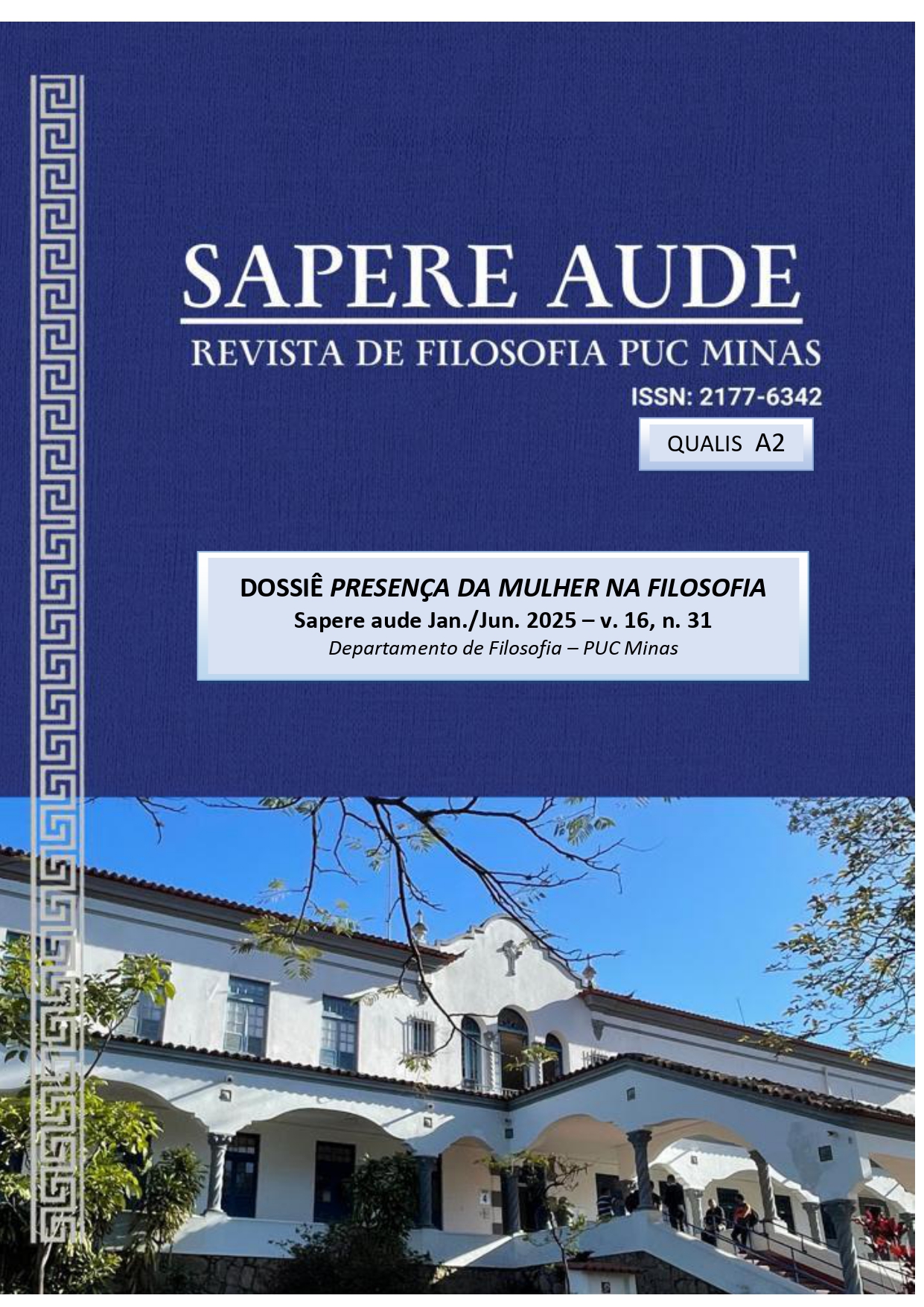METAFÍSICA, EPISTEMOLOGIA E A CONDIÇÃO POLÍTICA DOS INDÍGENAS CAETÉS
A Lágrima de um Caeté de Nísia Floresta como poema republicano revolucionário
DOI:
https://doi.org/10.5752/P.2177-6342.2025v16n31p50-62Palabras clave:
epistemologia ameríndia, Nísia Floresta, metafísica ameríndia, Brasil oitocentista, revolução praieiraResumen
Este trabalho é fruto dos estudos que nos permitiram realizar a primeira tradução do poema A Lágrima de um Caeté, de Nísia Floresta, para o inglês. Levando em conta a literatura secundária sobre o poema, quase exclusivamente oriunda da crítica literária, procuramos analisar o poema de modo a deixar explícitas questões filosóficas que são por ele mobilizadas. Assim, iremos apresentar o contexto histórico do poema e depois argumentar em defesa de dois pontos centrais: primeiro, que este poema deve ser considerado um marco no desenvolvimento da obra de Nísia Floresta; segundo, que o poema deve ser tomado como um documento sobre a condição política dos indígenas Caetés que trata de pontos centrais da metafísica e epistemologia ameríndias. No que diz respeito à metafísica, temos no poema a presença do rio como fonte de memórias e a possibilidade de comunicação com espíritos na floresta. Já no que diz respeito à epistemologia, o poema traz um paradigma de conhecimento distinto do tradicional na medida em que são as entidades que aparecem em um momento de visão que revelam o melhor caminho de ação, ao invés da investigação racional, sendo elas fundamentais para o processo de decisão.
Descargas
Citas
FLORESTA, Nísia. A Lágrima de um Caheté. Por Tellesilla. Typographia de L.A. F. de Menezes. 1849.
FLORESTA, Nísia. La Lagrime d’un Caeté - poemetto di Floresta Augusta Brasileira. Tradotto dal Portoguese in Altrettanti versi Italiani da Ettore Marcucci. Firenze. Co’Tipi Felice le Monnier. 1860.
FLORESTA, Nísia. A Lágrima de um Caeté. Por Telesila. Notas e posfácio de Constância Lima Duarte. Mossoró, Rio Grande do Norte: Sarau das Letras, 2021.
BARBORA, Rafael Souza. A Política do Indianismo Brasileiro vista a partir do Acervo de Ferdinand Denis. Conexão Letras, Porto Alegre. V. 17, n 28, 33-46. 2022. (https://dx.doi.org/10.22456/2594-8962.128779)
DA CAMARA, Adauto. Historia de Nisia Floresta. Rio de Janeiro, Irmãos Pongetti editores, 1941.
DA FONSECA, Antônio Borges. The Praieira Revolution Manifesto to the World. In: GREEN, James N., Victoria Langland & Lilia Moritz Schwartz (ed.s) Brazil Reader: History, Culture, and Politics. Duke University Press, 2019. pp. 197-198.
DUARTE, Constância Lima. Revendo o Indianismo Brasileiro. Boletim do CESP, v. 19, n. 25, julho-dezembro, 1999.
LIMA, Stelio Torquato. O Indianismo e o Problema da Identidade nacional em Lágrima de um Caeté, de Nísia Floresta. Tese de doutorado apresentada ao Programa de Pós-Graduação em Letras da Universidade Federal da Paraíba sob orientação da Profa.Dra. Zélia Monteiro Bora. João Pessoa, 2008.
PUGLIESE, Nastassja. Nísia Floresta. Cambridge University Press, 2023.
QUINTAS, Amaro. O sentido social da Revolução Praieira. Idéias. Revista do Instituto de Filosofia e Ciências Humanas da Universidade Estadual de Campinas. Ano 5, no 1, Janeiro/julho, 1998. pp. 9-62
Descargas
Publicado
Cómo citar
Número
Sección
Licencia
TERMO DE DECLARAÇÃO:
Submeto (emos) o trabalho apresentado, texto original, à avaliação da revista Sapere Aude, e concordo (amos) que os direitos autorais a ele referentes se tornem propriedade exclusiva da Editora PUC Minas, sendo vedada qualquer reprodução total ou parcial, em qualquer outra parte ou meio de divulgação impresso ou eletrônico, sem que a necessária e prévia autorização seja solicitada por escrito e obtida junto à Editora. Declaro (amos) ainda que não existe conflito de interesse entre o tema abordado e o (s) autor (es), empresas, instituições ou indivíduos.






